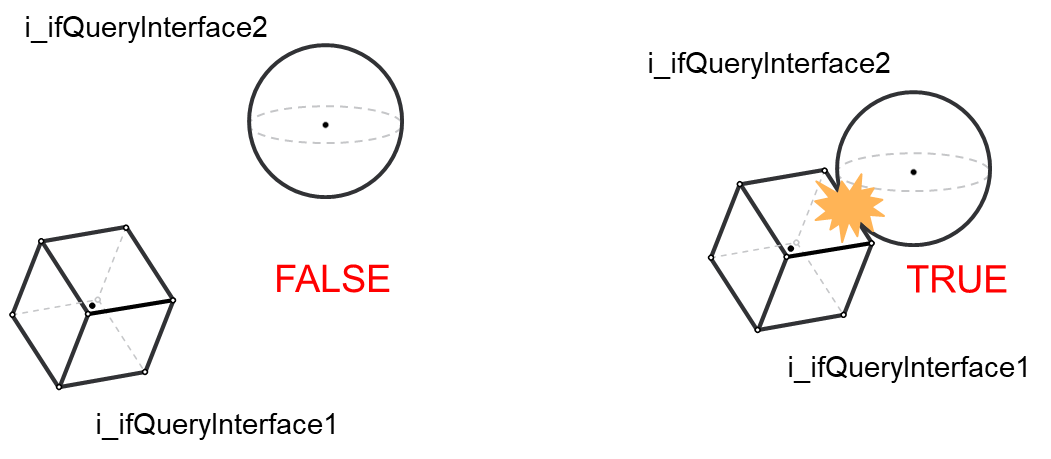Using FC_CollisionQuery
Overview
It is possible to perform a collision query by calling the function FC_CollisionQuery. The function expects two objects implementing the interface COD.IF_CollisionQueryInterface.
Collision objects, groups and entities are all valid implementations of the IF_CollisionQueryInterface, meaning that you may provide any combination of them as inputs for the function.
Performing a Collision Query
The following steps are required to perform a collision query:
|
Step |
Action |
|---|---|
|
1 |
Define a first collision object, group or entity and make sure it has xConfigured = TRUE in the case of an object or xUpdated = TRUE in the case of a group or an entity. |
|
2 |
Define a second collision object, group or entity and make sure it has xConfigured = TRUE in the case of an object or xUpdated = TRUE in the case of a group or an entity. |
|
3 |
Provide those objects as inputs of the FC_CollisionQuery function. |
On a successful call of FC_CollisionQuery, the function will return TRUE if a collision between the inputs have been detected, or FALSE otherwise.
Examples of collision queries between two collision objects:

Example in the case of two collision objects:
//configure the first object that is an OBB
fbOBB.SetCenterHalfExtentsOrientation(
i_stCenter := stOBBCenter,
i_stHalfExtents := stOBBHalfExtents,
i_stOrientation := stOBBOrientation,
q_xError=> xError,
q_etResult=> etResult,
q_sResultMsg=> sResultMsg
);
//check diagnostics here
IF xError THEN
//do something to handle the error
…
END_IF
//configure the second object that is a Sphere
fbSphere.SetCenterRadius(
i_stCenter := stSphereCenter,
i_lrRadius := lrSphereRadius,
q_xError=> xError,
q_etResult=> etResult,
q_sResultMsg=> sResultMsg
);
//check diagnostics here
IF xError THEN
//do something to handle the error
…
END_IF
//now that both the objects are configured, it is possible to perform a collision query
xCollision := COD.FC_CollisionQuery(
i_ifQueryInterface1:= fbOBB,
i_ifQueryInterface2:= fbSphere,
q_xError=> xError,
q_etResult=> etResult,
q_sResultMsg=> sResultMsg
);